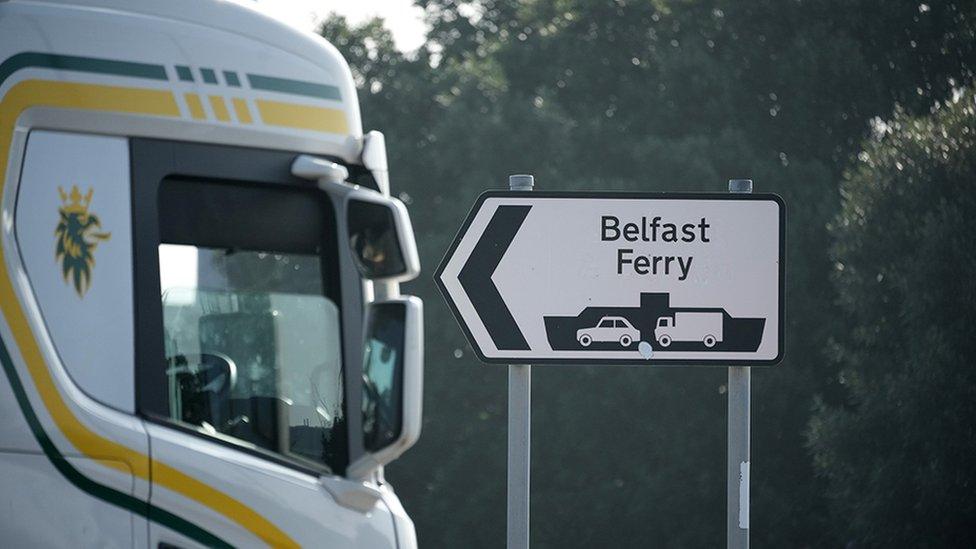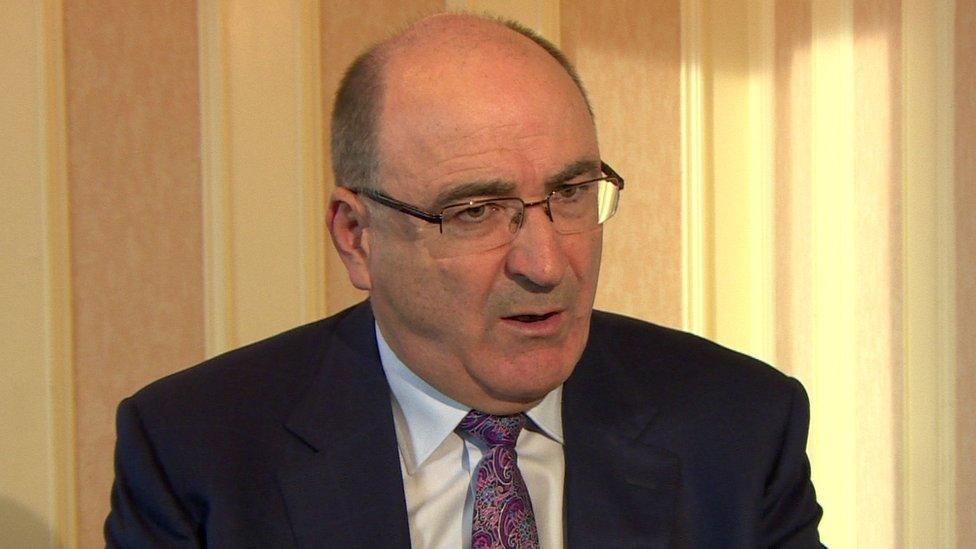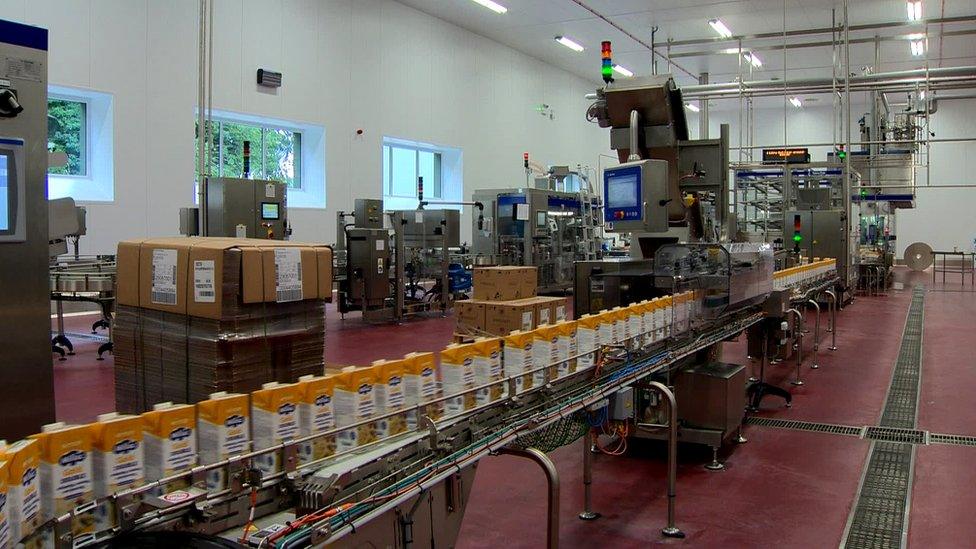NI Protocol: Lakeland Dairies boss slams government plan
- Published

A House of Lords committee has been hearing evidence from businesses on the Northern Ireland Protocol
A major food processor has warned that the government's plan to change the Northern Ireland Protocol will be a "disaster" for NI dairy exports.
Michael Hanley, chief executive of Lakeland Dairies, was giving evidence to a House of Lords committee.
The committee also heard from the boss of haulage firm McCulla Ireland, who said the protocol as it currently stood was "fundamentally flawed".
Peter Summerton said it was too difficult for small food importers.
The protocol is the post-Brexit trading arrangement that was agreed by the UK government and the EU in 2019.
It keeps Northern Ireland inside the EU's single market for goods, preventing checks on goods at the Irish border and giving Northern Ireland manufacturers better access to the EU than companies in other parts of the UK.
It also means there are checks and controls on goods entering Northern Ireland from Great Britain, leading to added cost and complexity for importing businesses.
The UK government says the protocol is not working and is planning to override most of the deal if the EU does not agree to radical changes.
Mr Hanley was focused on the UK's plan for a dual-regulatory regime.
It would mean goods made to either EU or UK standards could be sold in Northern Ireland, rather than just those meeting EU standards.
Some businesses have argued this would mainly be for the convenience of retailers and Great Britain businesses but would cause difficulties for Northern Ireland exporters, which are part of EU supply chains.

Michael Hanley of Lakeland Dairies said that without certainty of EU standards, milk from Northern Ireland could not be taken across the border for processing
Mr Hanley said it would create a level of ambiguity, which would potentially make it impossible to certify that NI-produced milk meets EU standards.
He explained that government vets need to certify that milk for export meets EU standards.
That would include considering whether feed and medicines given to animals also meet EU standards.
He said: "With product being available in Northern Ireland that could be produced to one of two regulatory regimes, how can the vet sign off on the certificate? That is the issue."
He added that without certainty of EU standards, Northern Ireland milk could not be taken across the border for processing.
'Attractive prospect'
Currently about 30% of milk produced in Northern Ireland is processed in the Republic of Ireland.
Mr Hanley said if that capacity was removed it could decimate the industry.
Roger Pollen, from the Federation of Small Businesses (FSB), suggested that some businesses could be exempted from the dual-regulatory system and continue to follow only EU standards.
He said that if that could be agreed with the EU it would be "an attractive prospect" as part of an overall deal.
The other main plank of the UK plan is the concept of green lanes, which would mean goods from Great Britain that are destined only for Northern Ireland would not need to be checked and would have minimal paperwork.
Goods destined for the Republic of Ireland would pass through a red lane and be subject to checks.
The UK government has been consulting with Northern Ireland businesses on how this might work but Mr Summerton expressed concern about some of what he has heard.
He told the committee: "I've concerns that the definitions of green lane and red lane aren't quite matching the original piece that the new prime minister told us in our offices in Lisburn."
He said the issue was a "trusted trader" scheme, which would qualify businesses to use the green lane.
He told the Lords: "That trusted trader scheme, from what I can see, is becoming more and more onerous and is becoming much less like moving goods from Birmingham to Glasgow."
Related topics
- Published2 February 2024

- Published7 March 2019
